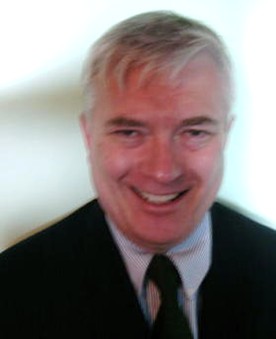Dealing with grief
This article was first published in Gift Planning in Canada and appears here with the author’s permission.
Gift planners well know the pleasures of working in this area of fundraising. You interact with generous donors who are usually deeply committed and know your cause intimately. You are also able to help them plan the implementation of their philanthropic dreams. To someone in the fundraising profession it cannot get much better than that! 
A downside to the profession, however, is that those dreams can only be fulfilled after a major and permanent life transition – death. When one of your planned giving donors or someone close to them dies, you may have to deal with grief – the grief of a remaining spouse, a family’s grief and sometimes your own. How does the planned giving professional deal effectively with such difficult realities?
Grief is nature’s emotional response to loss. The greater the loss, the more intense is the grief. People handle grief differently and on different timelines. This makes it more challenging to know what to do because one approach does not fit all.
The following suggestions may be helpful.
Show your respect
When a donor or someone close to them dies, you may choose to attend the visitation, memorial service or wake if distance allows. But attending may not be the most meaningful use of your time. One of my donors had recently lost his wife. When I commented to him on the beauty of her memorial service, he responded, “Oh, were you there?” He was too overwhelmed to remember that I had spoken to him at the reception following the service. A later personal visit in the donor’s home or writing a meaningful letter of condolence may be more productive.
Show compassion
An expression of caring and just “being there” with the person can go a long way in making a difficult time easier. Your physical presence, even for a short time, can have a healing dimension.
Listen
Listen to what happened and to the stories about the person. In so doing you will broaden your compassionate reach. Concurrently, avoid giving advice or trying to explain the loss. You role is that of a planned giving professional and no other.
Be prepared for a variety of emotions
In visiting the bereaved, I have encountered anger, sadness, tears, denial and even quiet joy. The joy came from a deeply religious person who believed her loved one was in a much better, happier place. Grief can be a real rollercoaster of emotions; just accept this as part of the process.
Make no assumptions
One day, I had back-to-back visits with two women recently widowed. Both had legacy gifts whose terms needed tweaking. The first widow was in deep mourning over the loss of a much-loved partner. The second widow was mourning too, but for different reasons. When I shared that I was sad for her loss, her quick response was “Don’t be!” The contrast between the two was startling but I discovered the latter’s marriage had been unhappy and the woman’s grief was related to her perceived loss of financial security.
Be practically helpful
If the death necessitates a change in the nature of a planned gift – the reworking of an agreement, the changing of a beneficiary, etc. – expedite the change quickly, efficiently and exactly according to the donor’s wishes. It will be something a donor no longer has to think about and it can help move them to their new normal.
Be careful of boundaries
Although you may be fond of the donor, you are not their friend. Stay connected, do what you can but be careful not to let the needs of the moment cloud the professional lines that must be maintained. Should you notice the grief lingering, you might wish to encourage your donor to seek outside counsel. But being the counsellor is not your role.
As a planned giving professional, you may even have to deal with your own grief if a liked and respected donor dies. The first time I learned of the death of a donor with whom I had experienced much interaction, the sense of loss took me by surprise. Be good to yourself and be confident that your sadness will shift into something different. You can relish a life well-lived. You can also savor the results of your work through the legacy gift that will now come to your organization. The donor’s philanthropic wishes will now be fulfilled.
Grief is a part of life and, for the gift planner, part of work. Knowing how to deal with grief appropriately will make us all the more effective in what we do.
Doug Flanders M.A., B.Ed. has worked closely with donors and volunteers for over 25 years, currently serving as the Director of Major and Planned Gifts for The United Church of Canada. Doug is a member of the Canadian Association of Gift Planners (CAGP), and a past member of the Board of the Greater Toronto Chapter of the Association of Fundraising Professionals (AFP). He is also a past chairperson of the national Board of Directors of The United Church of Canada Foundation.